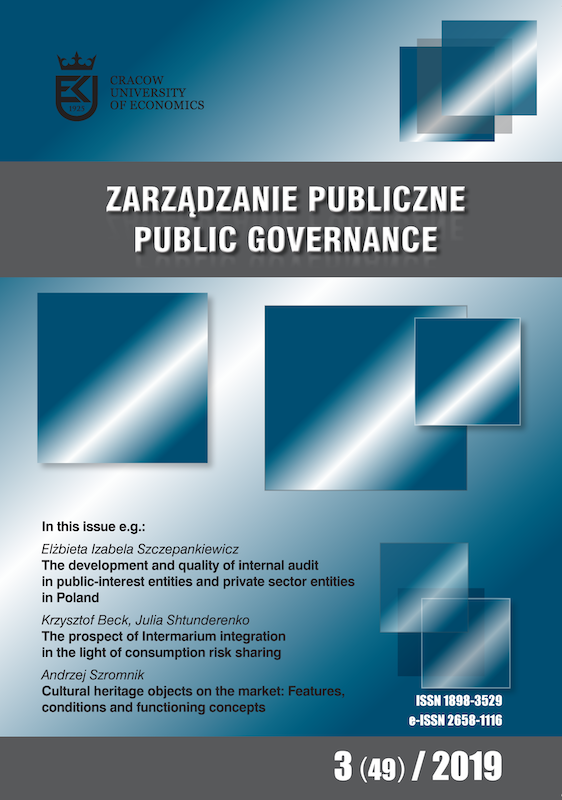The development and quality of internal audit in public-interest entities and private sector entities in Poland
The development and quality of internal audit in public-interest entities and private sector entities in Poland
Author(s): Elżbieta Izabela SzczepankiewiczSubject(s): Politics / Political Sciences, Economy, Governance
Published by: Uniwersytet Ekonomiczny w Krakowie we współpracy z Wydawnictwem Naukowym Scholar
Keywords: internal audit; public-interest entities; financial institutions; private sector entities; auditors
Summary/Abstract: Objectives: The purpose of this article is to discuss the regulations governing and the functioning principles for internal audits in financial institutions and private sector entities in Poland. Additionally, this study presents selected results of empirical research with regard to the effectiveness of internal audits in organisations. Research Design & Methods: To determine the research problems related to the functioning of the internal audit systems in financial institutions and private sector entities the author analysed specialist literature and reviewed earlier studies addressing this question. On the basis of the analysis of such literature and applicable legislation the author prepared an anonymous questionnaire and distributed it among internal auditors from a number of organisations. Findings: This paper discusses the legal basis and functioning principles for internal audits in financial institutions and private sector entities. The analysis related to internal audit functioning in financial and private sector presented in this paper made it possible to argue that the greatest development over the last several years took place in banks and insurance companies. On the basis of a survey carried out in financial institutions and private sector entities in Poland, the author set out to assess internal audit efficiency in organisations. Summarising the analysis of the internal audits in these entities, it should be argued that internal audit is highly diversified in specific types of entities. This results from the fact that individual entities operate in various legal and organisational environments and they differ in terms of their objective activity. Implications / Recommendations: This study has shown that the perception of the auditor’s role and auditing efficiency varies significantly in comparable institutions. These audits are indeed necessary and demonstrate the efficiency of internal audits in the financial and private sectors. These conclusions should be considered as an inspiration for more advanced studies. Contribution / Value Added: The author points to potential further research on internal audit efficiency in financial institutions and private sector entities.
Journal: Zarządzanie Publiczne
- Issue Year: 2019
- Issue No: 49
- Page Range: 5-19
- Page Count: 15
- Language: English

